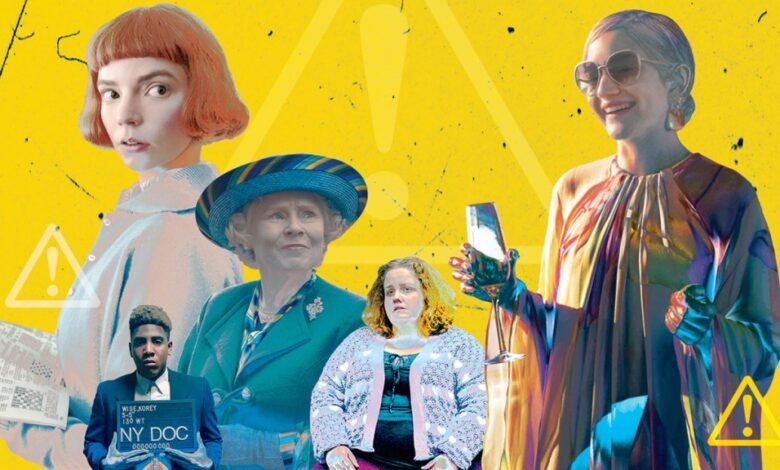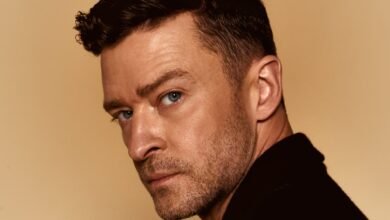Behind Baby Reindeer and When They See Us Battles

In the first episode of When They See Us, Ava DuVernay’s bleak drama about the Central Park Five, Linda Fairstein, then head of the sex crimes unit investigating the case, gives an order to dispatch an army of officers to Harlem. “Every young Black male who was in the park last night is a suspect in the rape of that woman who is fighting for her life right now,” says her character, played by Felicity Huffman. “You go into those projects, and you stop every little thug you see.”
Is that DuVernay leveraging broad artistic liberties under the First Amendment to make Fairstein the central villain in the miniseries, even though the ex-prosecutor might not have given that command? Or is it defamation?
In the acclaimed show, Fairstein is portrayed as the face of a crooked criminal justice system hell-bent on securing convictions against five Black and Latino teenagers accused of raping a white jogger in Central Park (they were cleared many years later). Throughout the series, she’s depicted as directing officers to harshly interrogate the boys in violation of their constitutional rights, withholding crucial evidence and ultimately coercing the confessions that landed them in prison. Fairstein, who sued for defamation in 2020, alleges that this never happened.
She’s not the only one to take issue with alleged inaccuracies in historical dramas. Other aggrieved subjects of film and TV productions that depict real people and use their real names include the royal family (The Crown), a swindler’s friend (Inventing Anna) and a Georgian chess champion (The Queen’s Gambit). As Netflix confronts a torrent of defamation lawsuits, a steadily growing body of case law is chipping away at legal protections once thought to provide sweeping cover for dramatizations.
Lisa Callif, a lawyer who handles financing, production and legal clearance for productions, says scrutiny around dramatizations has increasingly created a “difficult dynamic” in which creatives must be warned against “embellishing things, like adding negative attributes or enhancing negative depictions.” She stresses, “Now we have this battery of cases going to our point. This makes us even more careful.”
On June 4, Netflix and DuVernay settled with Fairstein in the closely watched case. Under the deal, Netflix agreed to move a dramatization disclaimer from the credits to the beginning of each episode — a first for the streaming giant that could signal a more cautious approach to docudramas and biopics.
For Netflix, this case was about more than When They See Us or the $8 million the lawsuit sought. At stake in the litigation: artistic liberties wielded by creatives making films and TV shows chronicling real-life events. On this front, Netflix has steadily been losing ground. It rolled the dice letting the case go as far as it did, losing that gamble when the court found that a jury should decide whether Fairstein was defamed in five scenes. “The damage has already been done,” says Alexander Rufus-Isaacs, a lawyer who has represented plaintiffs in lawsuits against Netflix over alleged defamation in The Queen’s Gambit and Inventing Anna, referencing case law in the litigation that he predicts will be cited in lawsuits down the road.
For DuVernay, making When They See Us was a chance to clarify history. As a high school junior in Compton applying to journalism schools when the crime became national news, she said she was wary even before the group was vindicated that “the news might not be true” and that the boys may have been being railroaded by the criminal justice system.
So when Raymond Santana, one of the Central Park Five, tweeted at her in 2015 soliciting her involvement in a show about the case, DuVernay jumped at the opportunity. It was a chance for the director to tackle issues she’s dedicated her career to — issues of race, criminal justice and who gets to write history. It’s her telling of that history, and whether she was faithful to source materials she drew from to create the show, that was the subject of the lawsuit.
For public figures like Fairstein, the bar for defamation is exceptionally high. Moving for dismissal of the lawsuit, Netflix and DuVernay argued that they didn’t act with “actual malice,” a legal standard for defamation requiring evidence that there were doubts about the accuracy of allegedly defamatory actions or reckless indifference to the truth. The show’s writers, they said, “absolutely believed that their overall portrayal” of Fairstein “reflected the essence of truth based on their multiple, trusted sources and research.”
The court didn’t agree. It pointed to evidence that conduct is attributed to the ex-prosecutor that’s “unsupported by the writers’ substantial body of source materials.” One of the allegedly defamatory scenes shows Fairstein drafting a timeline of the rape that positions the five as responsible for the attack even though conflicting research described another prosecutor as the timeline’s author. “Had they just called her character Lucy Field, this case is very different,” says Andrew Miltenberg, a lawyer for Fairstein.
Netflix did use different names in Richard Gadd’s Baby Reindeer, which draws upon Gadd’s experiences as it follows a struggling comedian who encounters a troubled woman at a bar where he works. Revealed as Fiona Harvey in a defamation lawsuit filed June 6, she’s depicted as a twice-convicted stalker who was sentenced to five years in prison for various crimes — and is called Martha in the series. Harvey faces an uphill climb in court, according to legal experts. “If they’re not identifiable, they can’t have a beef,” Rufus-Isaacs says.
Findings in another lawsuit Netflix faced accusing it of defaming Nona Gaprindashvili, a Georgian chess champion in the 1970s who took issue with a line in The Queen’s Gambit stating that she “never faced men,” don’t help the streaming giant. In that case, the court rebuffed a bid to dismiss the lawsuit, rejecting arguments that the complaint didn’t sufficiently allege actual malice, the legal standard for defamation against public figures. Castel, the judge overseeing the When They See Us lawsuit, referenced that ruling in his order clearing the case for trial, concluding that the standard can be met “when a dramatization or fictional work includes a description of a real-life person that is contradicted by the source material.” He stressed, “As observed in Gaprindashvili, remarks about an actual person may be defamatory even when uttered by a character in a work of pure fiction.”
In a court declaration, DuVernay stated that the show’s writers “had a huge amount of research material from a variety of sources and perspectives,” including five books, court transcripts and news articles. She said the sources almost universally painted Fairstein in an unfavorable light, especially after the convictions were overturned. One example: Michael Warren, a lawyer for some of the five, said in an interview that “Fairstein controlled those detectives.” DuVernay “had no doubt whatsoever” that the ex-prosecutor was central to the investigation and prosecution, was “morally and legally culpable” for the case’s outcome, and that “she crossed moral and ethical lines and breached the public trust,” she said.
Zelda Perkins, a former assistant to Harvey Weinstein who served as a producer on The Crown, says that there are “a lot of checks and standards productions have to adhere to,” but that they’re ultimately “work[s] of fiction based on facts.” She also consulted with producers on She Said, a 2022 film following The New York Times reporters who took down the ex-movie mogul.
Perkins stresses that processes for fact-checking scripts for historical inaccuracies are “clearly inadequate” in the “slight Wild West-type attitude that there is in the creative industry” on the issue.
It didn’t help Fairstein that she declined an interview with DuVernay before the series was made either. Also lending credibility to DuVernay’s depiction of that the ex-prosecutor was that she facilitated introductions between Weinstein’s legal team and Manhattan’s lead sex crimes prosecutor when he was accused of groping an Italian model, who reported the incident to law enforcement.
Another reason studios might pump the brakes on embellishments in dramatizations: insurance. Not only have premiums on such projects shot up — in some instances by as much as 250 percent in the past decade — but deductibles for some high-risk showrunners and writers can reach $250,000, according to lawyers at legal clearance houses for productions.
Both sides declared victory after the When They See Us settlement. Netflix walked away without having to pay Fairstein anything, including her hefty legal bills, in an agreement that some lawyers said was too good to leave on the table. But it agreed to move the disclaimer, a concession the streamer never made in any of its previous defamation battles.
This story first appeared in the June 12 issue of The Hollywood Reporter magazine. Click here to subscribe.
Source link




